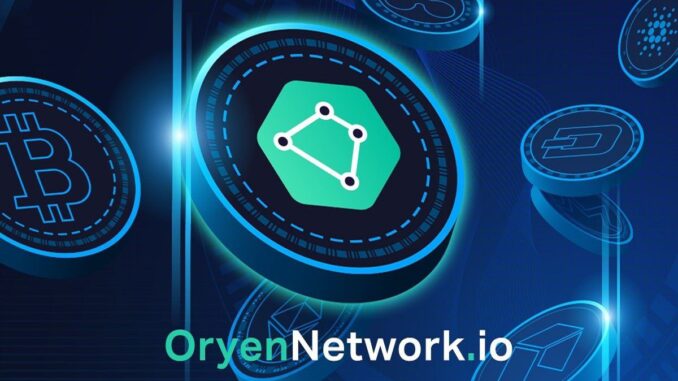
The recent chaos in the crypto market is spreading like wildfire.
The market is still on its knees and has barely recovered from the LUNA crypto collapse back in May. The epicenter of this latest downturn is the FTX.com exchange.
Following a fallout between FTX.com and its rival, Binance, the latter opted to liquidate its FTX token holdings.
However, given the considerable stake of $FTT that Binance holds, other traders feared the token price would plunge and started selling off too. Eventually, FTX couldn’t process the requests due to a liquidity crunch.
Consequently, $FTT fell 85%, causing panic across the crypto sector. One of the worst-hit projects amid the turmoil is Solana. Its token $SOL is already down 45%. Other primary tokens have also dipped.
Surprisingly, one project has weathered the storm and provided remarkable performance. Oryen Network is up 110%, with the earliest backers enjoying their best-ever returns in 2022. So, how far could the FTX storm reach?
What is Oryen Network?
Oryen is a community-governed and censorship-proof DeFi platform for staking. The protocol’s developers have built an intuitive staking platform that simplifies staking via the Oryen Autostaking Technic or OAT.
This system powers yield-rich staking with returns of up to 90% per year. Further, investors holding Oryen’s native token ($ORY) are eligible for interest payouts every hour. Oryen Network is the best staking protocol with a high-frequency passive income generation.
To build the best, Oryen has made its framework safe for holding users’ assets. For example, the platform keeps its smart contracts secure through regular audits with SolidProof.
This way, Oryen fends off hackers from the network. Additionally, Oryen utilizes an anti-whale tax mechanism to keep the network 100% decentralized, avoiding potential malice by would-be whales.
ICO performance of Oryen
The BSC-based protocol is on a rally with over 2X gains since launching its ICO weeks ago. The ongoing ICO has remained steadfast, recording the newest highs weekly as the token price surges. After launching at $0.05, $ORY has reached $0.11 and will top $0.125 by early December.
The impressive performance has attracted interest from top traders holding loss-making tokens. Here’s a schedule of the ongoing presale:
What is FTX?
$FTT is an ERC-20 token that serves as the native utility token for the crypto exchange platform FTX.com. The exchange was launched in 2019 by Sam Bankman-Fried, alias SBF, with backing mainly from Almeda Research, Coinbase Ventures, and BlackRock.
FTX.com operates in several countries worldwide and has over 1 million registered users. However, following its recent troubles, $FTT’s demand has fallen, and with it, the price. Currently, FTX.com isn’t processing withdrawals and advises traders against making deposits.
What is Solana?
Solana is a blockchain protocol that achieves short processing times for its high scalability. The platform leverages proof-of-stake and its dedicated proof-of-history hybrid consensus mechanism to reduce processing time for transactions and smart contracts.
Solana has been a victim of crypto’s latest downturn caused by FTX problems. The blockchain’s native token, $SOL, has shed nearly half its value in hours owing to its connection to FTX.
More panic on the $SOL price is the nearing unlock of staked $SOL which is about 15% of the total token supply. Holders fear that the staked $SOL could be liquidated and cause a LUNA-type collapse.
The Bottomline
Not all crypto projects have built systems to secure users’ assets. When exposed, such projects tumble quickly, wiping out investments to billions of dollars. Solana and FTX are just the latest in the list of projects built on quicksand.
Even with the struggling market, solid projects are thriving. The Oryen Network is up and heading further upwards. The network’s RFV staking, OAT, and Treasury offer a buffer mechanism to protect users’ assets from volatility effects. So the FTT troubles won’t hurt ORY.
Learn more here:
Join Presale | Website
Disclaimer
All the information contained on our website is published in good faith and for general information purposes only. Any action the reader takes upon the information found on our website is strictly at their own risk.











Be the first to comment